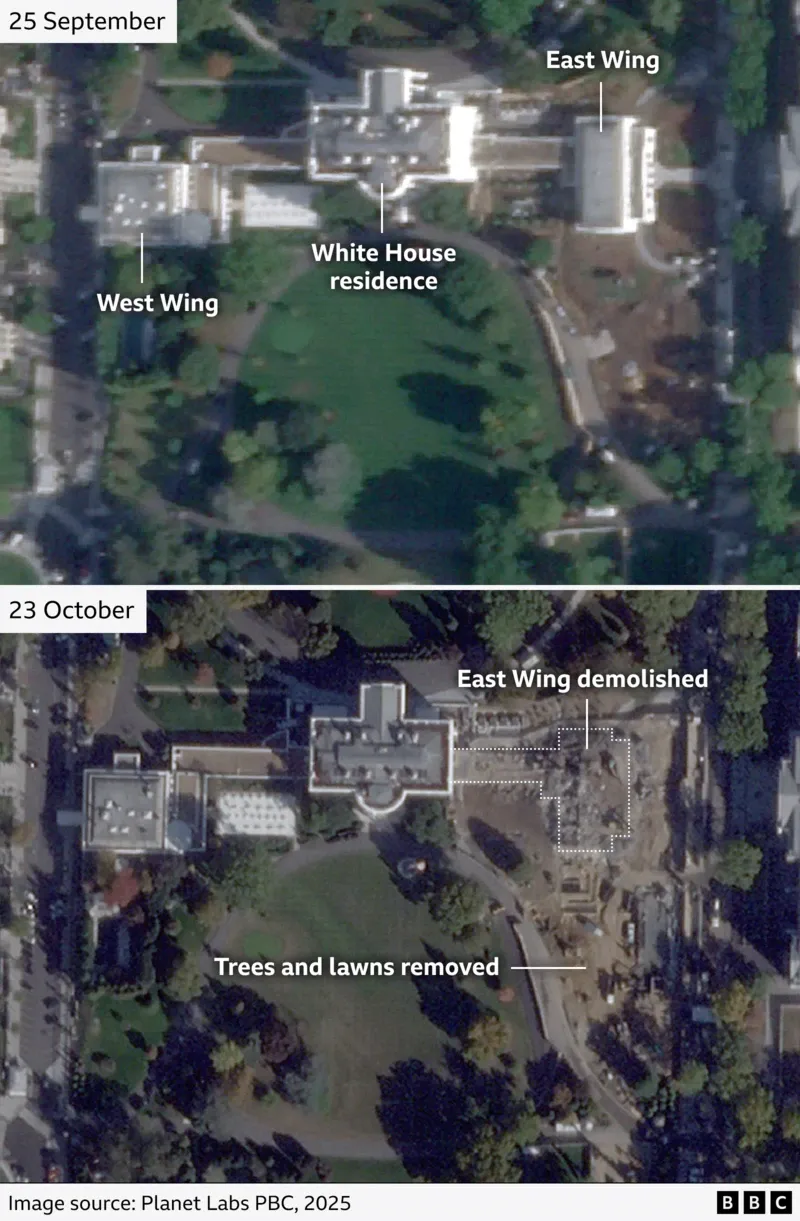A Call for Accountability: Why the “No Kings” Movement Must Mobilize Now
A Call for Accountability: Why the “No Kings” Movement Must Mobilize Now

The past few weeks have been a whirlwind of shock, disbelief, and mounting frustration for anyone who cares about the integrity of our democratic institutions. Recent satellite imagery released on October 24th shows the east wing of the White House—an iconic symbol of American governance—completely demolished. The images raise unsettling questions about the speed and opacity with which this historic structure was razed, especially given the longstanding legal and procedural safeguards meant to protect our national heritage.
A Rapid Descent into Unchecked Power
What makes this development particularly alarming is the apparent disregard for due process. Historically, any alteration to federal property of this magnitude would involve extensive reviews, environmental impact assessments, and, most importantly, congressional oversight. Yet, within a matter of days, the east wing vanished, seemingly bypassing the very mechanisms designed to prevent hasty, unilateral action.
Compounding the issue, the administration has reportedly invited private corporations to finance the reconstruction of the White House’s ballroom—a space traditionally funded by taxpayer dollars. This move blurs the line between public stewardship and private profit, raising concerns about the commodification of our nation’s most revered landmarks.
The “No Kings” Movement: A Growing Demand for Checks and Balances
These events underscore the urgency of the “No Kings” movement—a grassroots coalition dedicated to preserving democratic norms and ensuring that no individual or office can act above the law. The movement’s core principles include:
- Transparent Governance: All actions affecting public assets must be subject to open scrutiny and legislative approval.
- Fiscal Responsibility: Public funds—and symbols—should not be handed over to private interests without rigorous accountability.
- Rule of Law: No leader should be able to sidestep judicial processes, especially when those processes are deliberately slow.
Why a Supermajority Matters
To translate these ideals into concrete change, the movement must aim for a supermajority in both chambers of Congress. Achieving a two‑thirds majority would enable:
- Expedited Impeachment Proceedings: While impeachment is a grave measure, it remains a constitutional tool to hold leaders accountable for abuses of power.
- Legislative Safeguards: Enacting statutes that require bipartisan consent for any alterations to federal properties or historic sites.
- Strengthened Oversight: Expanding the powers of independent watchdog agencies to investigate and report on executive actions in real time.
A Path Forward
- Mobilize Voters: Grassroots organizing, voter registration drives, and community forums can build the broad coalition needed for a supermajority.
- Educate the Public: Clear, factual communication about the implications of unchecked executive authority helps counter misinformation and apathy.
- Engage Local Leaders: State legislators and municipal officials can amplify the message, applying pressure from multiple levels of government.
Conclusion
The demolition of the White House east wing is more than a structural loss—it is a stark reminder that democratic safeguards can be eroded when power is exercised without restraint. The “No Kings” movement offers a hopeful blueprint for restoring balance, demanding transparency, and protecting the symbols that embody our shared values.
Now is the moment to turn outrage into organized action. By rallying change, we can ensure that future leaders are held to the highest standards of accountability, and that the halls of power truly serve the people—not the whims of a single individual.
